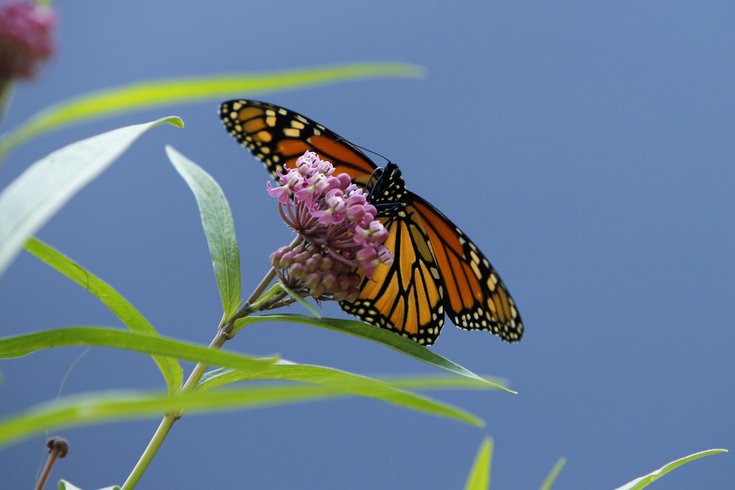
March 24, 2015
 Ann Heisenfelt/AP
Ann Heisenfelt/AP
The National Wildlife Federation has launched a program called "Butterfly Heroes" where people of all ages can sign up to be a hero and receive a free package of native milkweed seeds.
Each spring, brightly colored orange-and-black monarch butterflies pass through New Jersey and Pennsylvania as they make their multi-generational migration north through the United States.
But because of agricultural and gardening practices in the U.S., the monarchs' food source and habitat are at risk, and the species' population is dwindling - it has declined more than 90 percent over the past two decades, according to the National Wildlife Federation.
"By making milkweed more available on public lands, parks, roadsides and in private yards and gardens, monarchs will have a better chance for long-term survival," said New Jersey Audubon conservation advocate Megan Tinsley.
We can help.
By planting a milkweed butterfly garden in our backyards, we can help revive the species and give our monarch friends a place to rest up and eat while on their journey.
"We can save the monarch butterfly in North America, but only if we act quickly and together," Dan Ashe, service director of the U.S. Fish and Wildlife Service, said in a statement urging the public to help save the monarchs.
New Jersey Audubon is also on board and is pushing for the passage of several state bills, including establishing an "Adopt a Monarch Butterfly Waystation" that will provide resources and coordination for planting milkweed on public lands and parks and designating May as "Milkweed for Monarchs" month.
"By making milkweed more available on public lands, parks, roadsides and in private yards and gardens, monarchs will have a better chance for long-term survival," said New Jersey Audubon conservation advocate Megan Tinsley.
Milkweed, a native perennial plant, is the main source of food for the monarch species, with the plants’ leaves offering nutrition for the larvae and the bright flowers producing nectar for adult butterflies.
There are more than 100 species of milkweed in North America available for purchase year round, particularly during the spring and summer months.
In Pennsylvania and New Jersey, the ideal types to grow in your garden include common milkweed, also known as Asclepias syriaca, a species that is vital for early generations of monarchs each spring, as well as butterfly weed, a hardy perennial and popular nectar plant.
You can learn more about when, how and where to plant milkweed here.